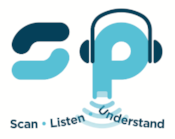Covid-19 and Learning Loss: What does the Pandemic Mean for K-3 Education?
Mid-year data from the DIBELS Early Reading Assessment indicates that grades K-3 are performing worse in the middle of the 2020-21 school year than the 2019-20 school year. This is damning evidence for the negative effects of the Covid-19 pandemic on mainstream education, and something many students, educators, and parents are deeply concerned about.
DIBELS—Dynamic Indicators of Basic Early Literacy Skills—is a series of short tests developed by the University of Oregon to assess K-8 literacy. Results from the first part of the 2020-21 school year show that more students were slipping behind, and that the learning losses were much more pronounced than those typically expected over the summer break.
Taken from a sample of 400,000 students in 1,400 schools, the results demonstrate a widespread and relatively large downturn in educational attainment in the past year.
The percentage of kindergarteners ‘on track’ in their learning decreased from 55% to 37%.
The percentage of first graders ‘on track’ in their learning decreased from 58% to 43%.
There was a 68% increase in kindergarteners who required intensive educational intervention.
There was a 65% increase in first graders who required intensive educational intervention.
The data also highlights that there is a demographic aspect to learning losses like these. At the mid-point of the last school year, 27% of Black kindergarteners were described as falling ‘well below benchmark’ and being in the lowest category for literacy skills. If we fast-forward to the mid-point of this school year, the DIBELS data shows that this has doubled. This means that there are twice as many Black children who are at risk of not learning to read. We can also observe a similar trend in the data relative to Hispanic children, where there has been a 25% increase in kindergarteners falling into the lowest category for literacy skills.
It’s a sobering thought: although educators and students have responded with resilience and determination to the learning challenges that Covid-19 has bought with it, some of our youngest learners are struggling to achieve their full potential. The post-pandemic educational landscape looks set to spend a lot of time trying to counteract these learning losses so that everyone can go on to succeed. An overall dip in literacy levels is an outcome that could have a pronounced impact on generational achievement when it comes to further education and career prospects, and it’s likely to have an impact on the already considerable stress levels of staff and students too.
It’s easy to feel that the advent of national vaccination programmes and some lockdowns being slowly dismantled means that the effects of the pandemic on our daily lives might be receding. For some students, however, these effects are only just in their nucleic form, and it remains to be seen what the long-term impact of this kind of learning environment might be.
